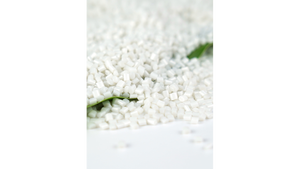Lightweight Polyurethane Foam Wins Altair Enlighten Award
Developed by Marelli, the material can be applied to all foam-in-place (FIP) applications, particularly the main dashboard panel.
August 11, 2023

Global technology company Altair and the Center for Automotive Research (CAR), both based in Michigan, have named Marelli as the 2023 Enlighten award winner in the Future of Lightweighting category for its polyurethane foam for interior products. Altair is a global leader in computational science and artificial intelligence (AI) that provides software and cloud solutions in simulation, high-performance computing (HPC), data analytics, and AI.
Marelli has developed a new lightweight polyurethane foam that can be applied to all foam-in-place (FIP) applications, particularly the main dashboard panel. This achievement is the result of a joint development with materials partner Covestro.
40% weight reduction
The new foam reduces weight by 40% with new tooling (8% with current tooling); decreases foam thickness by 50%, to support styling aesthetics; and reduces raw material costs by 20% compared to the current foam in use. In line with the industry’s ongoing focus on sustainability and eco-friendly materials, the new foam also reduces the environmental impact of automotive production through its reduced material usage per part, lower density, and 80% reduction in volatile organic compounds (VOCs).
While delivering environmental benefits, the lightweight foam meets and often exceeds customer specifications for high-quality feel and appearance of interiors. FIP technology is an automotive interior staple for efficiently achieving a much-desired soft feel in primary-touch surface parts, such as the main dash panel, door panels, and the center console armrest.
Solvay's Ajedium PEEK slot liners a runner up
The runner up in the Future of Lightweighting category was Solvay Specialty Polymers for its Ajedium PEEK slot liners that can reduce battery pack weight by 12 kg (36.4 lb.) and electric motor size by 4 kg (8.8 lb.). Additionally, there is no requirement for high-power dedusting equipment or climate-controlled storage to prevent moisture uptake — which reduces energy consumption — since PEEK slot liners can be inserted via existing equipment.
As EV manufacturers are moving from 400- to 800-volt systems, or higher, conventional paper laminate slot liners can no longer live up to the challenges arising from this trend. “In comprehensive simulation testing, Ajedium PEEK film has demonstrated its outstanding property profile for improving the thermal, electrical, and mechanical performance of slot liners, while enabling thinner secondary insulation and providing a more sustainable mono-material solution,” noted Brian Baleno, head of automotive marketing at Solvay
The superior electric insulation and thermal heat dissipation of Ajedium PEEK also enhances thermal management efficiency, which allows designers to downsize the aluminum casting and create more sustainable e-motors with less energy and material consumption. Further, the PEEK film shows excellent chemical resistance to automatic transmission fluids (ATF) and good adhesion to varnish. In addition, it eliminates the need for dedusting equipment and climate-controlled storage, reducing energy costs and improving workspace conditions.
About the Author(s)
You May Also Like




